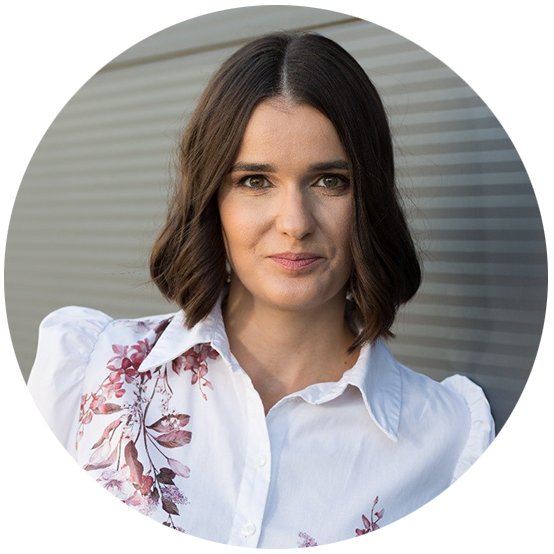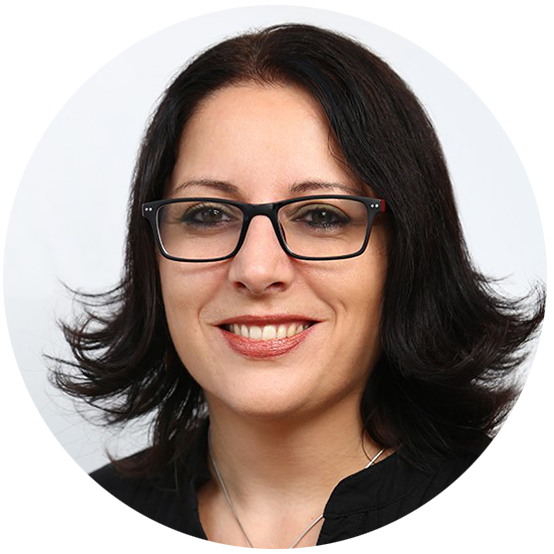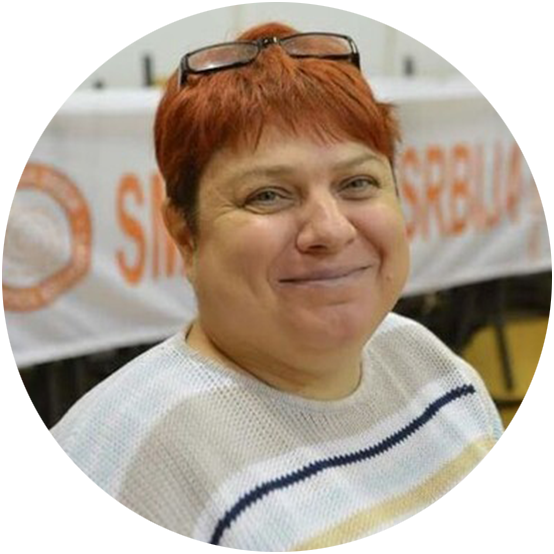TraNSfer’s subconference
Dear colleagues,
It is our grear pleasure to invite you to contribute to the TraNSfer's subconference which will be held on Wednesday, October 25, 2023 as a part of the conference Current Trends in Psychology. The TraNSfer subconference is organized by the Psychology Students’ Club – TraNSfer in collaboration with the Department of Psychology.
The subconference aims to bring together psychology students from Serbia and the region to share their research experiences, gain new knowledge, get to know each other better and collaborate.
You can follow all the information about the subconference on the Instagram and LinkedIn pages of the Psychology Students’ Club – TraNSfer.
Plenary lecture

Tijana Karić,PhD, Philipps University Marburg
Reconciliation as the Ultimate Goal Without Meaning: Conceptualization of Intergroup Reconciliation on the Example of Bosnia and Herzegovina
In post-conflict societies, reconciliation between parties previously involved in conflict is one of the most important goals pursued by various actors. However, although it is set as the ultimate goal, and a large amount of research deals with this topic, the meaning of the concept of reconciliation is not clearly defined. This can be a problem because - if we don't know exactly what it is, how will we know if it has been achieved?During this lecture, a series of five studies conducted in the context of Bosnia and Herzegovina will be presented, which deal with the conceptualization of reconciliation and the factors that influence it. Different methodologies were applied in the studies: qualitative (focus groups), quantitative (correlation studies), and mixed method (Q methodology). Also, various analyses have been applied to explore the understanding of the concept of reconciliation - not always with success. I will discuss findings within the existing (few) theoretical approaches to reconciliation, but also numerous challenges in defining such a complex concept.During this lecture, a series of five studies conducted in the context of Bosnia and Herzegovina will be presented, which deal with the conceptualization of reconciliation and the factors that influence it. Different methodologies were applied in the studies: qualitative (focus groups), quantitative (correlation studies), and mixed method (Q methodology). Also, various analyses have been applied to explore the understanding of the concept of reconciliation - not always with success. I will discuss findings within the existing (few) theoretical approaches to reconciliation, but also numerous challenges in defining such a complex concept.
Dr Tijana Karić is a research associate at Philips University in Marburg, Germany. She completed her studies in psychology, including a doctorate, at the Faculty of Philosophy in Novi Sad. In her research, she deals with intergroup relations in post- conflict societies, with an emphasis on reconciliation, social identities and victimization. In another line of research, Dr. Karić explores the perceptions of intergroup threat and its impact, in combination with social identities, on political solidarity and political inclusion.
Workshops

Tijana Mirović, PhD, Counseling Center Mozaik; Center for Schema Therapy, Belgrade
What kind of schemas led to my schemas?
We all have some issues that we keep stumbling upon! We all have those "well I can't believe that once again I..." moments. We all have a specific "type" of people that attract yet trigger us. People who have us running in circles - in a kind of circle we wanted to be a part of but ended up needing to get out as soon as possible. Then, once out, we couldn’t wait to go back in believing that "everything would be different now". We rush get back in only to discover that nothing has changed (of course)!So, we all have some schemes that cause problems and dilemmas. The goal of this workshop is to get to know these schemas a bit better, so that we could start learning to control them. In the hour and a half ahead of us, we will look for answers to questions such as: What are schemas? Why do we have them? Where do these schemas come from? Why are they so difficult to change or can they be changed and how?
Put in a more serious academic language, during the workshop we will have the opportunity to get acquainted with the basic postulates of Schema Therapy - an integrative psychotherapeutic approach created by Jeffrey Young. Developing Schema Therapy, Young integrated the best of various psychotherapy approaches with the goal of creating a highly effective therapeutic method that could treat developmental and complex trauma,; a method that could help clients meet unmet basic (developmental) needs by changing long-term and repetitive cognitive, emotional, interpersonal and behavioral patterns.
Come, so that we can get to know both ourselves and each other as well as this very effective therapeutic approach!
Tijana Mirović has a PhD in psychology and she is accredited Schema therapist (advanced level), trainer and supervisor, as well as Cognitive Behavioral / Rational-Emotive Behavioral Psychotherapist (Associate Fellow of Albert Ellis Institute) and Systemic Family Psychotherapist. Until 2019, she was employed as an associate professor for the field of psychology and pedagogy at the Faculty of Music in Belgrade, and since 2009 she has been working as a psychotherapist and runs the psychological counseling center "Mozaik" (Belgrade, Serbia), which she founded. In 2016, she founded the Center for Schema Therapy in Belgrade (the first accredited training center for schema therapy in the region) and since then she has been holding accredited trainings and supervisions in Serbia, Greece, Bulgaria, Slovenia, Croatia, Bosnia and Herzegovina, North Macedonia, Montenegro and Egypt. Tijana is the creator and initiator of the project "Trauma - our story", the author and presenter of the series "Trauma Heroes" and "ZOOMing Trauma", as well as the main and responsible editor of professional publications published by Mozaik and Center for Schema Therapy Belgrade. She is also the author/co-author of schema therapy cards, three books, seven book chapters and numerous scientific papers on the topic of schema therapy and trauma.

Tatjana Stojšić Petković
Self-confidence in people with disabilities
Psychologist Tatjana Stojšić Petković has many years of experience in working with women with disabilities, and through this workshop she will share her experience with the participants. Special emphasis will be placed on the area of self-confidence and participants will have the opportunity to learn empowerment techniques and specifics in working with people with disabilities.Born on August 17, 1967, married, has two daughters, a dog and a cat... Psychologist with experience in the area of social welfare. She also works as a psychotherapist. Her first job was at the Home for Children and Youth in Veternik. She works with women with disabilities, women who have experience of violence, and sexual abuse. Since 4 years ago, she is working with people who have addiction problems and runs a support club for parents whose children have addiction problems. Since 2 years ago, she is the president of the National Organization of Persons with Disabilities. She practices laughter therapy. She is using a wheelchair since she was 7 years old.